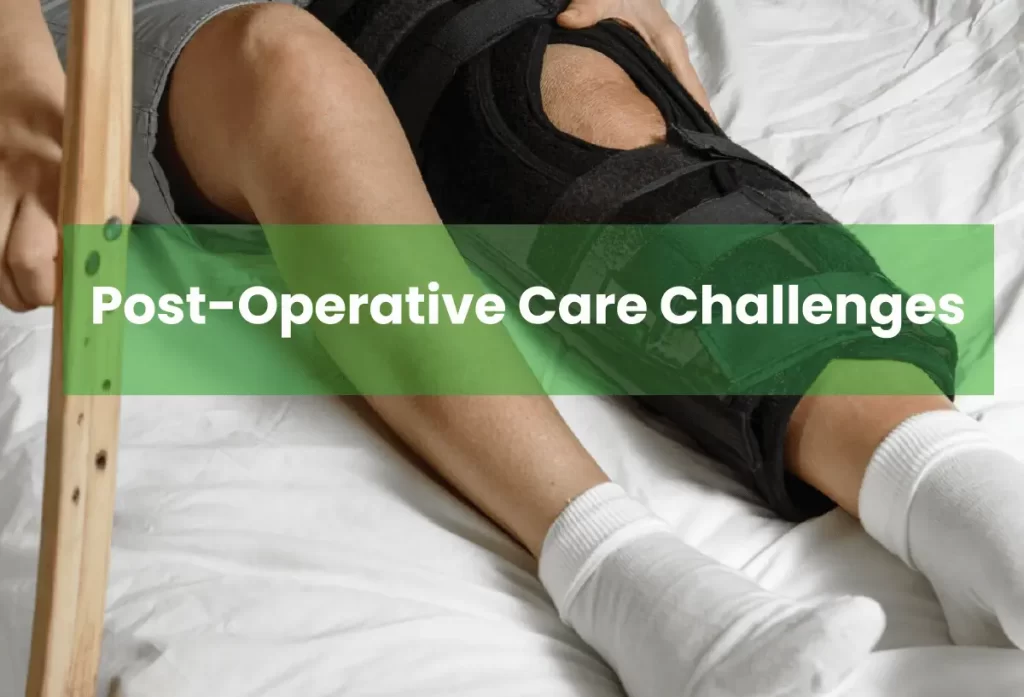The period following a surgical procedure is one of the most critical phases in a patient’s recovery journey. We will explore the numerous challenges in post-operative care and how they affect patients physically, emotionally, and logistically. While the operation itself might mark the beginning of healing, what happens afterward determines how well it progresses. Pain management, limited mobility, infection risk, and emotional stress often converge during this time, demanding careful attention and support. Many patients are discharged with instructions, medications, and follow-up schedules, but transitioning from a controlled hospital environment to the unpredictability of home life can be overwhelming. Some find themselves unsure how to care for surgical wounds, manage their medications, or resume daily activities safely. Without proper guidance or assistance, setbacks such as complications or hospital readmissions can occur. This post-surgery phase requires clear communication, accessible resources, and practical support systems that adapt to the patient’s changing needs as they recover.
Common challenges in post-operative care
-
Mobility and Physical Limitations in Daily Life
Limited mobility is one of the first significant hurdles many patients face after surgery. Whether due to pain, weakness, surgical site sensitivity, or movement restrictions, even simple activities can become difficult. Tasks like walking to the bathroom, preparing a meal, or bathing might require assistance or modifications to the home. Sometimes, patients are discharged before they regain the strength or confidence to navigate their space independently, increasing the risk of falls or overexertion. Family members or caregivers may not be prepared to provide the kind of physical support needed, and not every patient has access to professional in-home care.
This lack of reliable help can lead patients to push themselves too soon, potentially causing injury or delaying healing. The physical strain can also affect mental well-being. Losing the ability to move freely, even temporarily, often brings frustration and a sense of helplessness. Addressing these physical challenges means thinking beyond medical charts and considering how a person functions in their environment. Mobility aids, adaptive equipment, and physical therapy may be necessary but challenging without guidance or insurance support. The road back to independence is not always straightforward, and each step can feel daunting when physical limitations are constant reminders of the body’s vulnerability.
-
Managing Pain and Medication Compliance
Controlling pain while avoiding overmedication is a delicate balancing act during the post-operative period. Many patients are prescribed painkillers, anti-inflammatory drugs, and sometimes antibiotics, but not everyone understands how or when to take them properly. Pain may be underreported due to fear of dependency or misjudged due to lack of education on pain levels. This often results in inconsistent medication use, which can hinder recovery or increase complications. Some individuals may try to “tough it out” without adequate pain control, leading to reduced mobility or sleep disturbances that slow down healing. Others may unintentionally exceed the prescribed dosage or combine medications that interact poorly.
There is also a growing concern about opioid use and its potential consequences, which has led to more cautious prescribing—but sometimes without proper alternatives or adequate patient education. Post-operative care must include medication access, clear instructions, and follow-up to ensure they’re used correctly. Pharmacy confusion, side effects, or delays in prescription refills add further strain to a patient’s ability to manage pain effectively. Recovery becomes more complicated when pain is either ignored or misunderstood. Ensuring that patients and caregivers have practical, understandable guidance can significantly affect how smoothly the recovery process goes.
-
Logistical Challenges and Transportation Barriers
Practical concerns also play a big role in post-operative recovery. Many patients face significant logistical challenges, especially when attending follow-up appointments or physical therapy sessions. Due to medication, movement restrictions, or general fatigue, driving may not be an option. Public transportation is often uncomfortable, unreliable, or inaccessible for someone healing from surgery. Friends or family might be unavailable or live nearby, leaving the patient stuck without a safe or consistent way to get where they need to go.
This lack of dependable transportation can delay essential check-ins, wound care visits, or therapy sessions, crucial to long-term healing. Inadequate transportation can also increase the chance of complications going unnoticed, leading to emergency room visits or extended recovery times. This is where well-coordinated Post-Operative Care NEMT Services can offer tremendous relief, ensuring patients have safe, timely rides to the places supporting their healing. Transportation should not be an obstacle in recovery, yet for many, it becomes one of the most limiting aspects of post-surgical life. Addressing this issue helps restore autonomy and increases the likelihood of patients completing their care plans successfully.
Post-operative care brings many challenges beyond what happens in a hospital room. From mobility struggles and pain management to emotional distress and logistical complications, patients often need more support than they receive. Recognizing these issues is the first step in building a patient-centered recovery system. Families, caregivers, and care providers must work together to create environments where healing can happen safely, comfortably, and completely. Clear communication, emotional support, and access to transportation and follow-up services are essential to ensure recovery doesn’t stall once the patient leaves the hospital. The road to wellness is rarely linear, but it can become smoother and less isolating with the right tools and support. Post-operative care isn’t just about returning to normal—it’s about navigating a temporary phase with confidence, compassion, and care.




